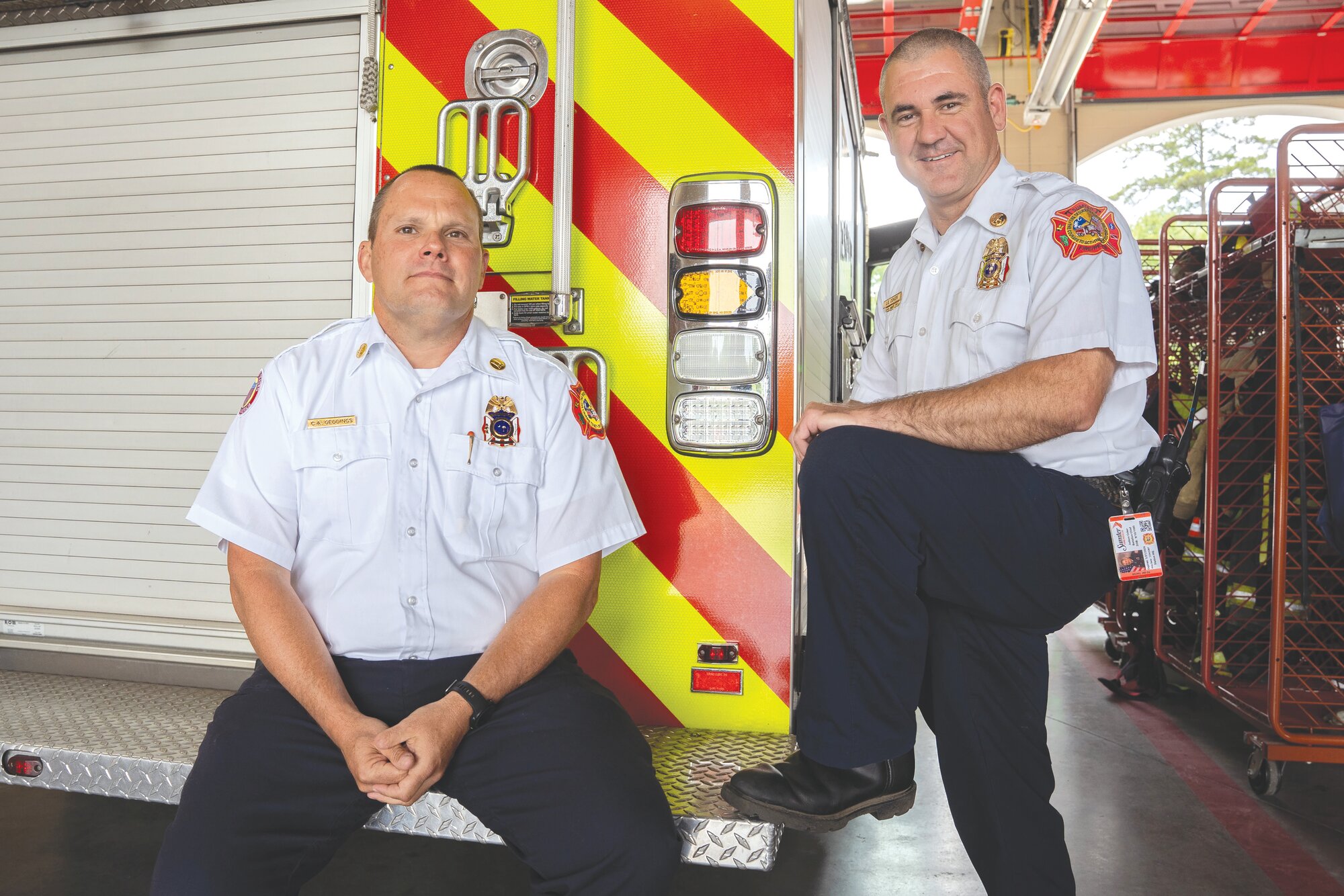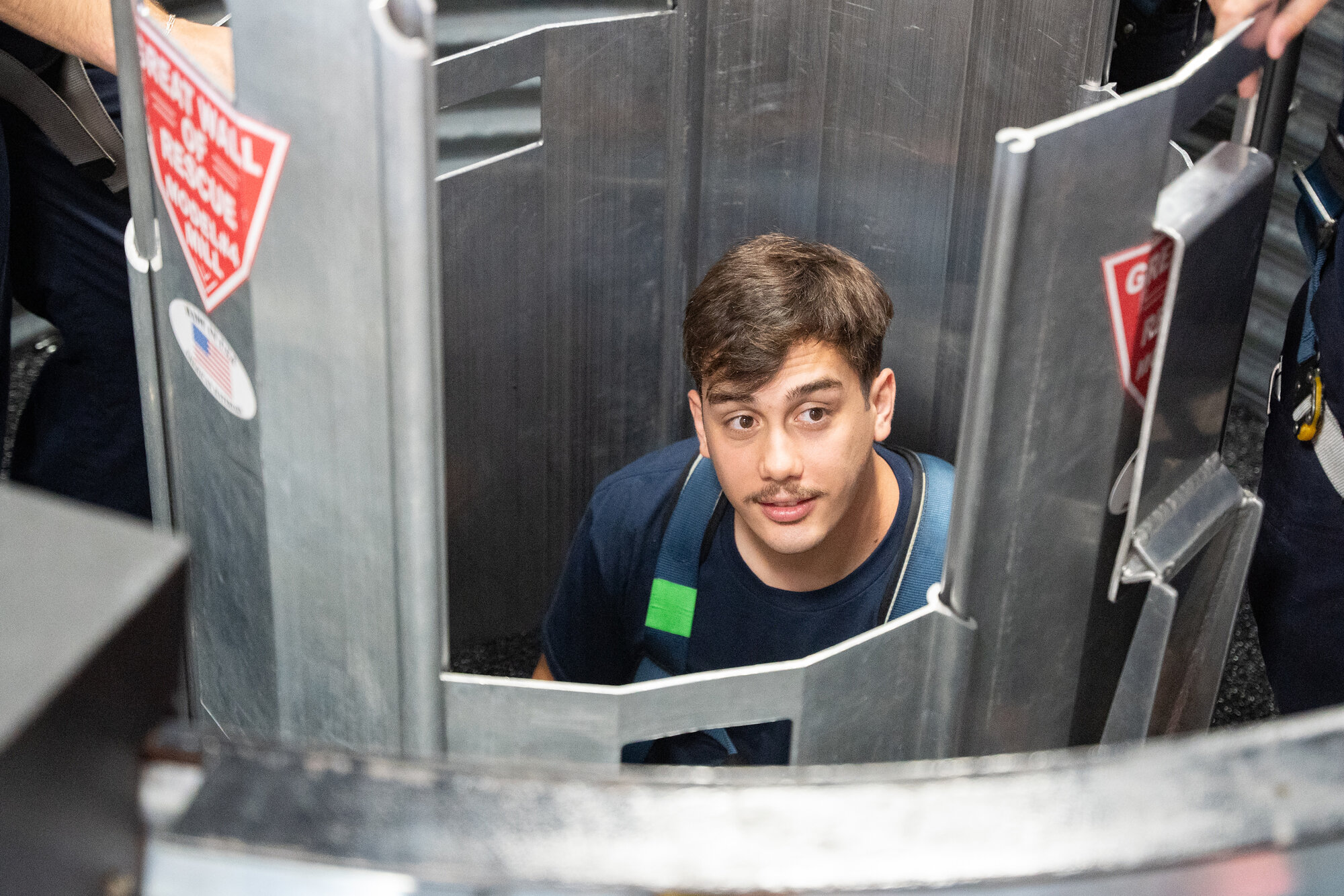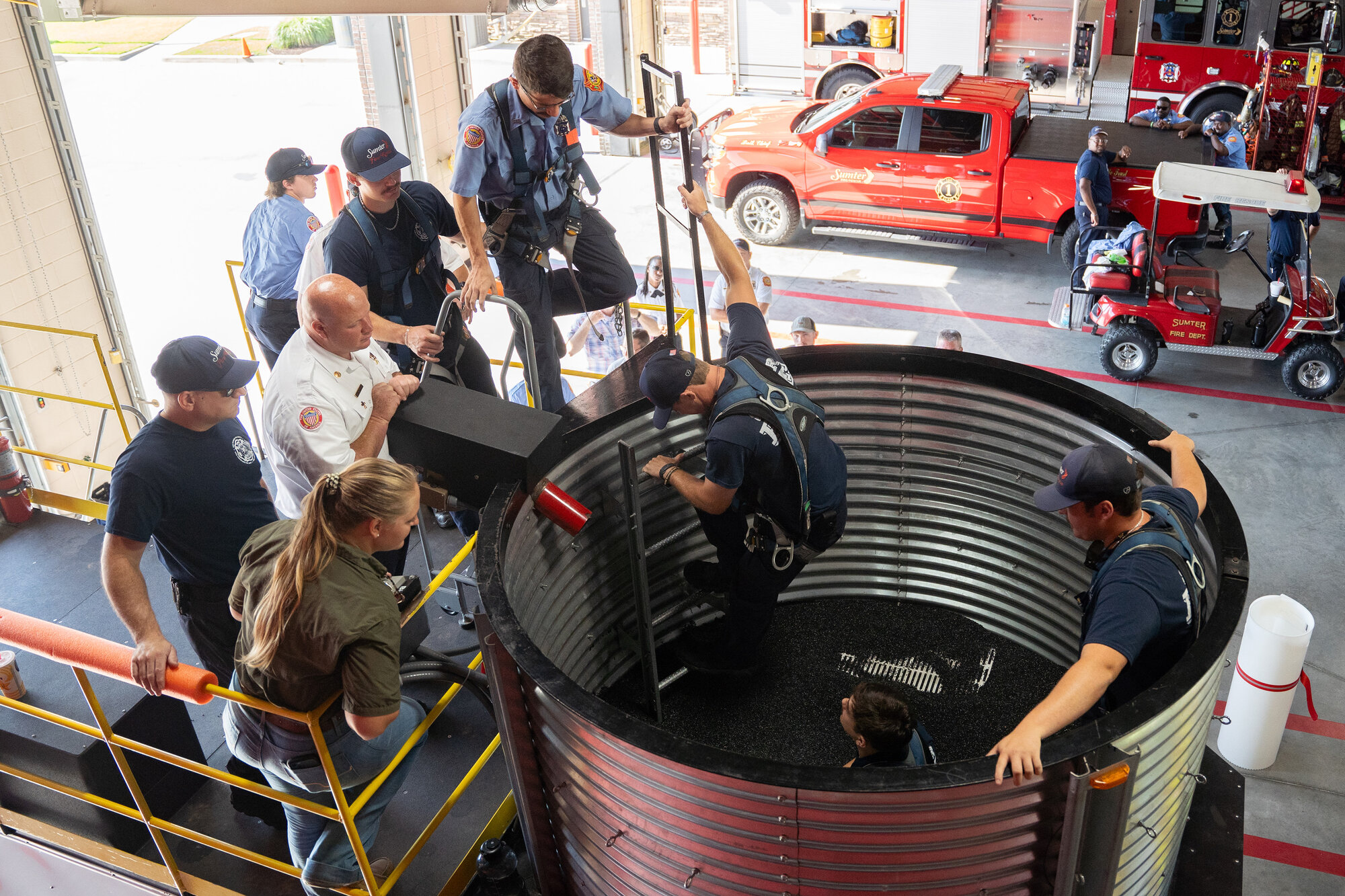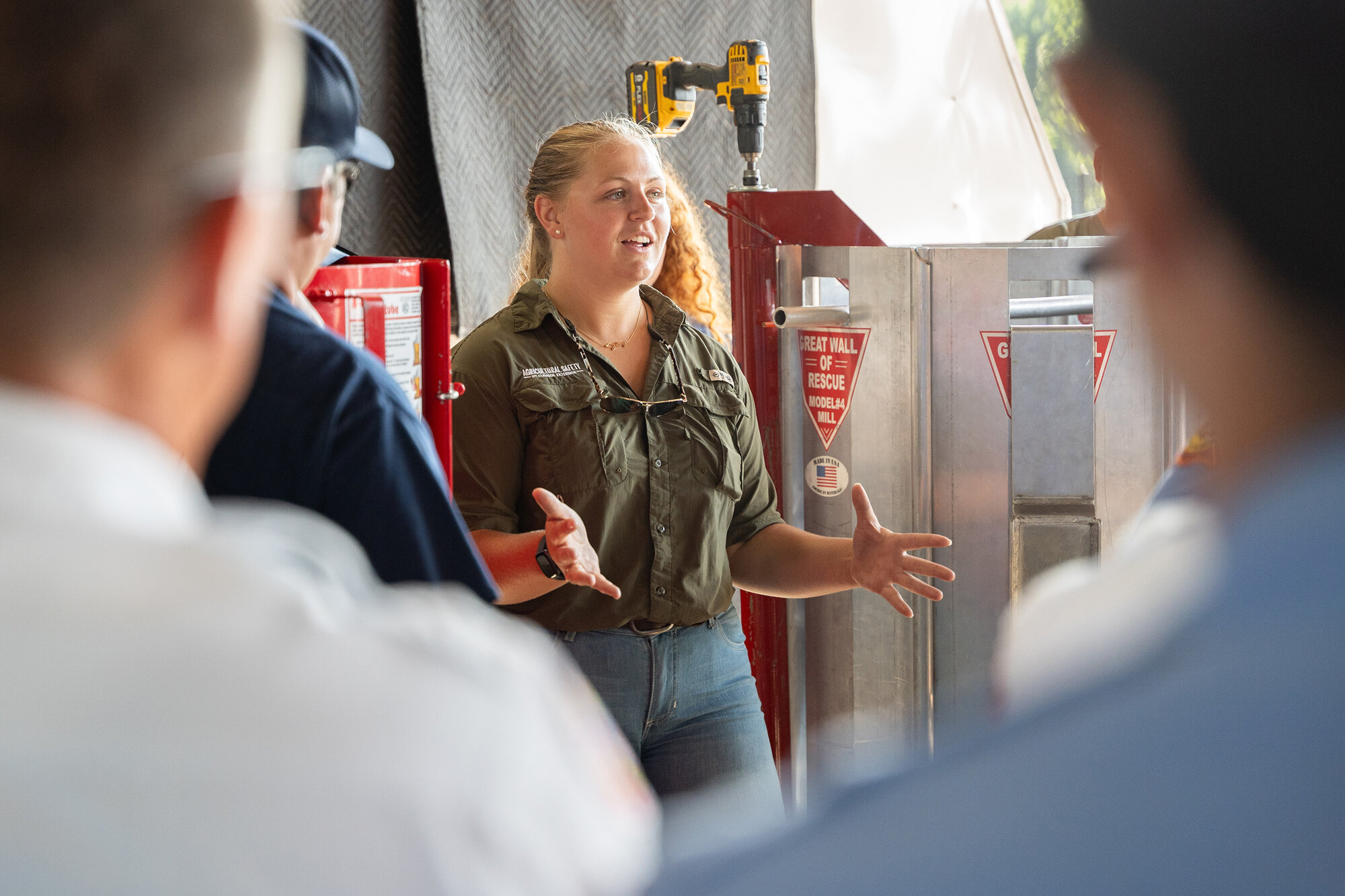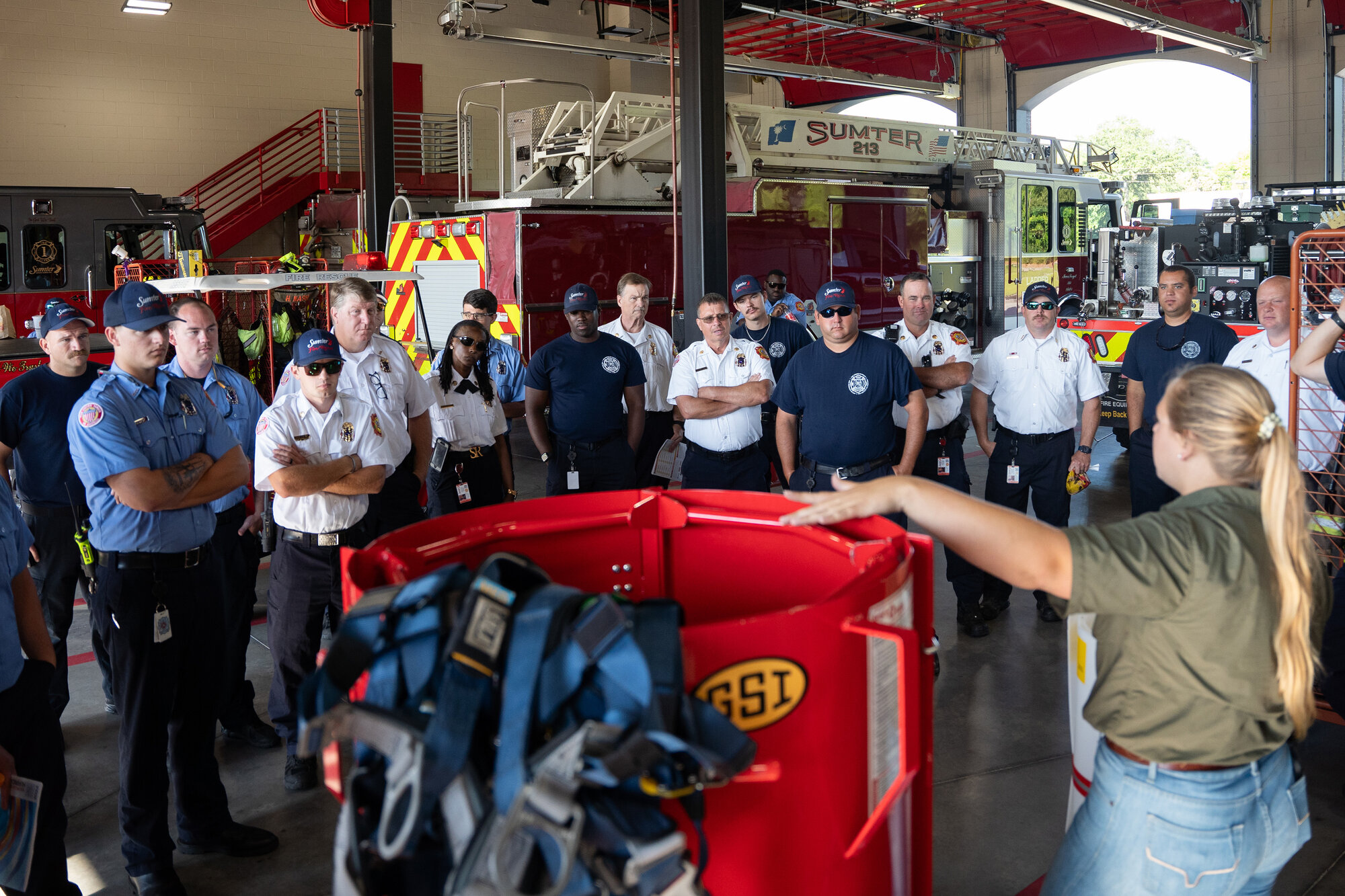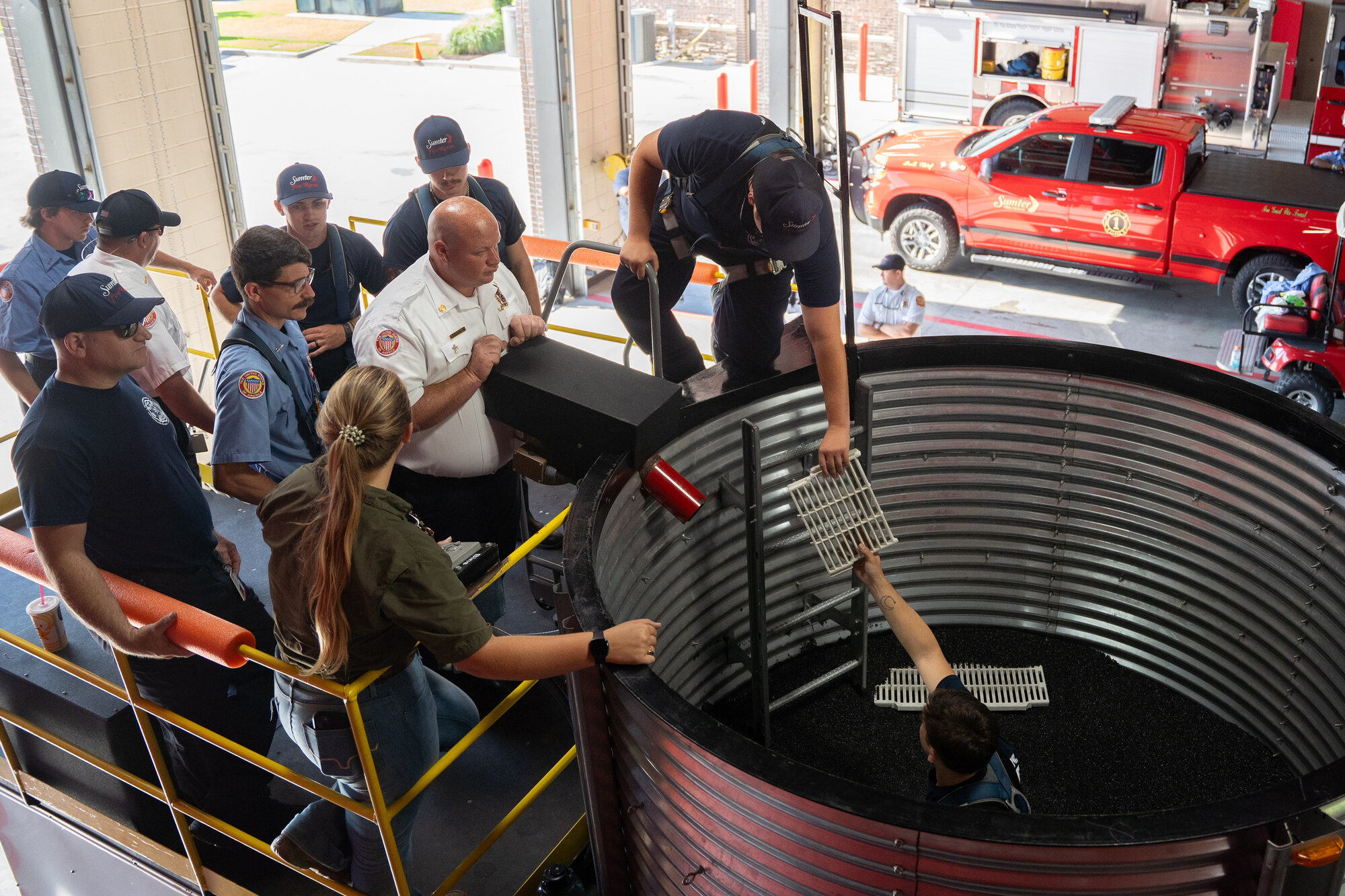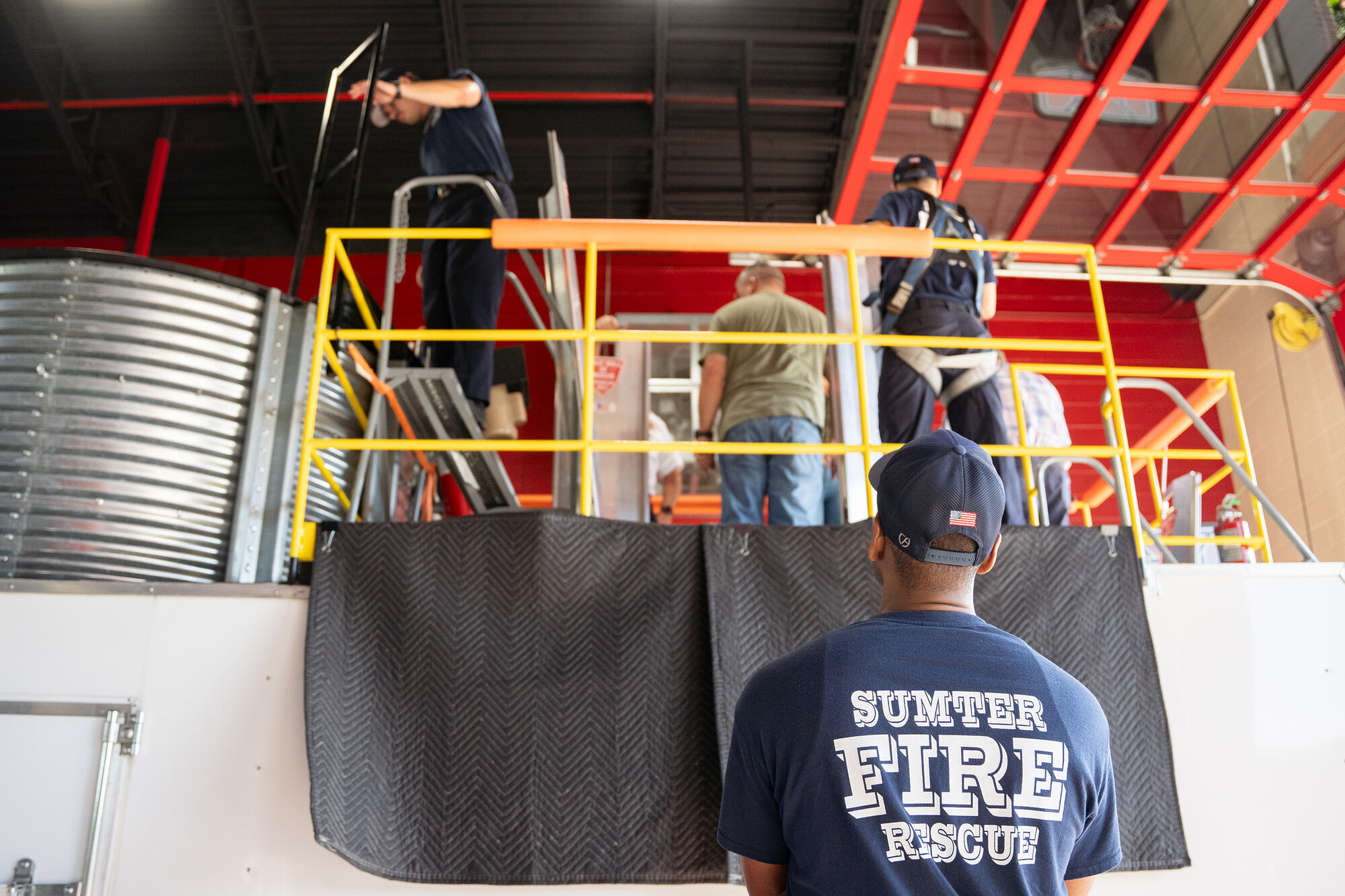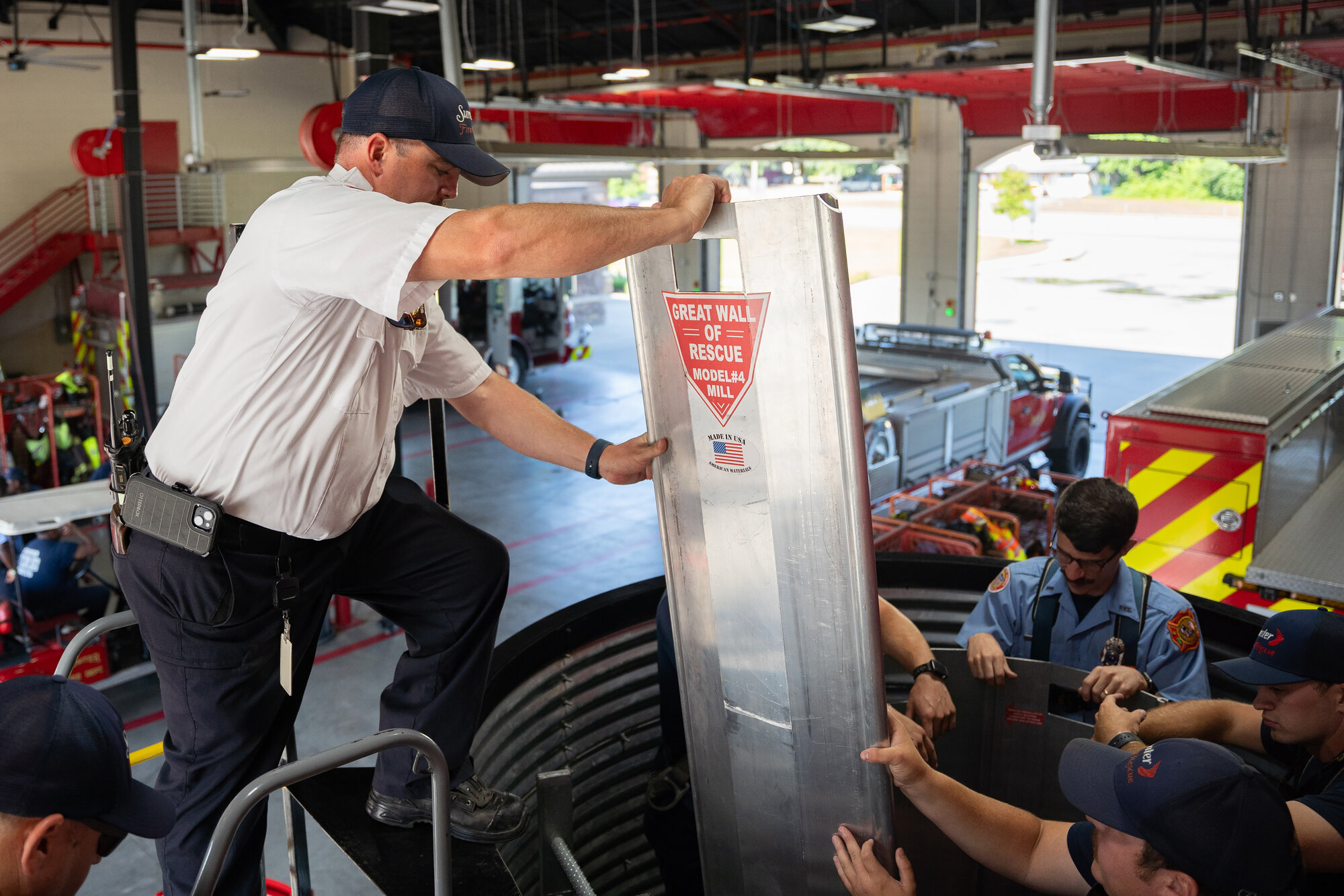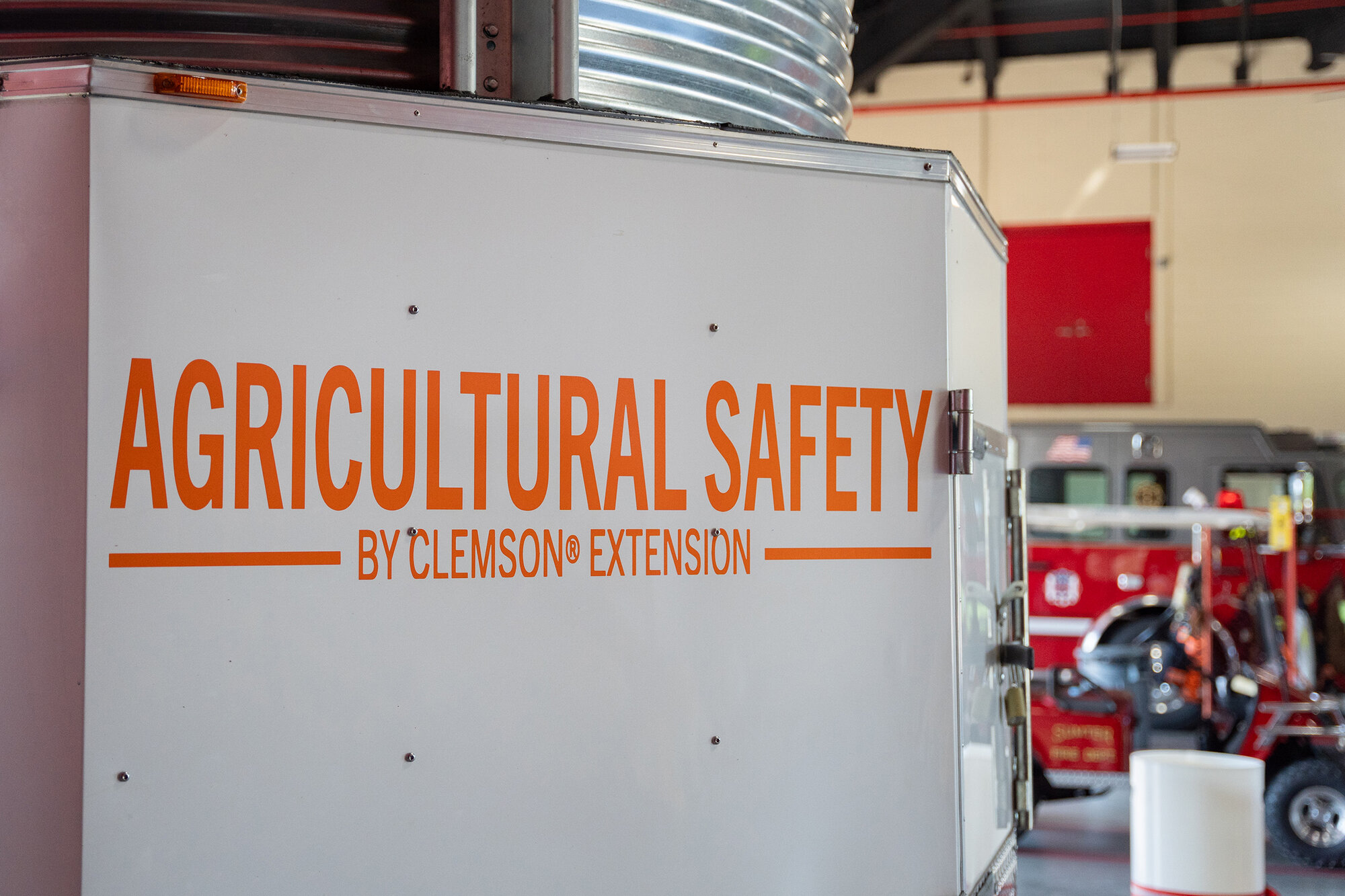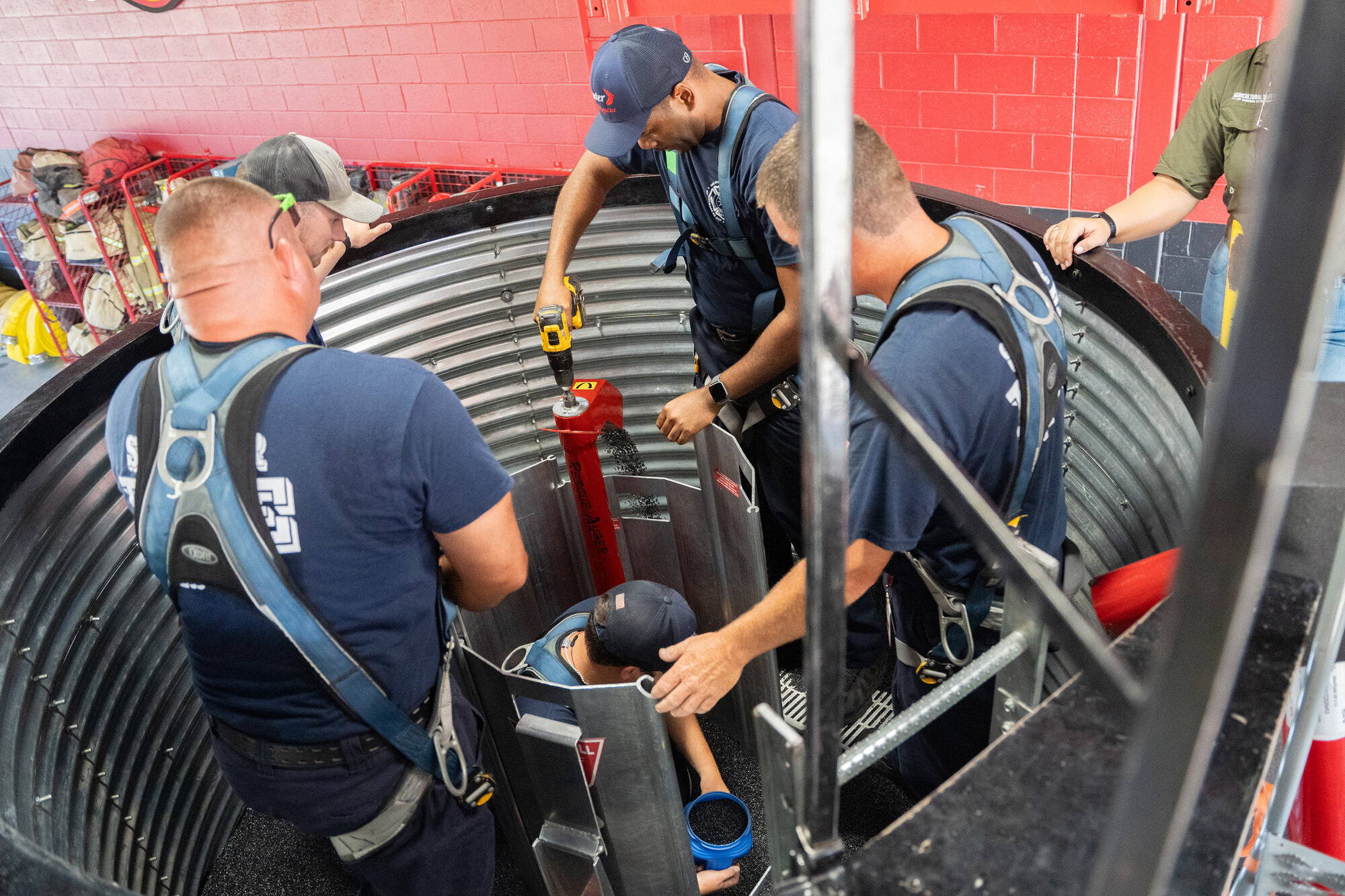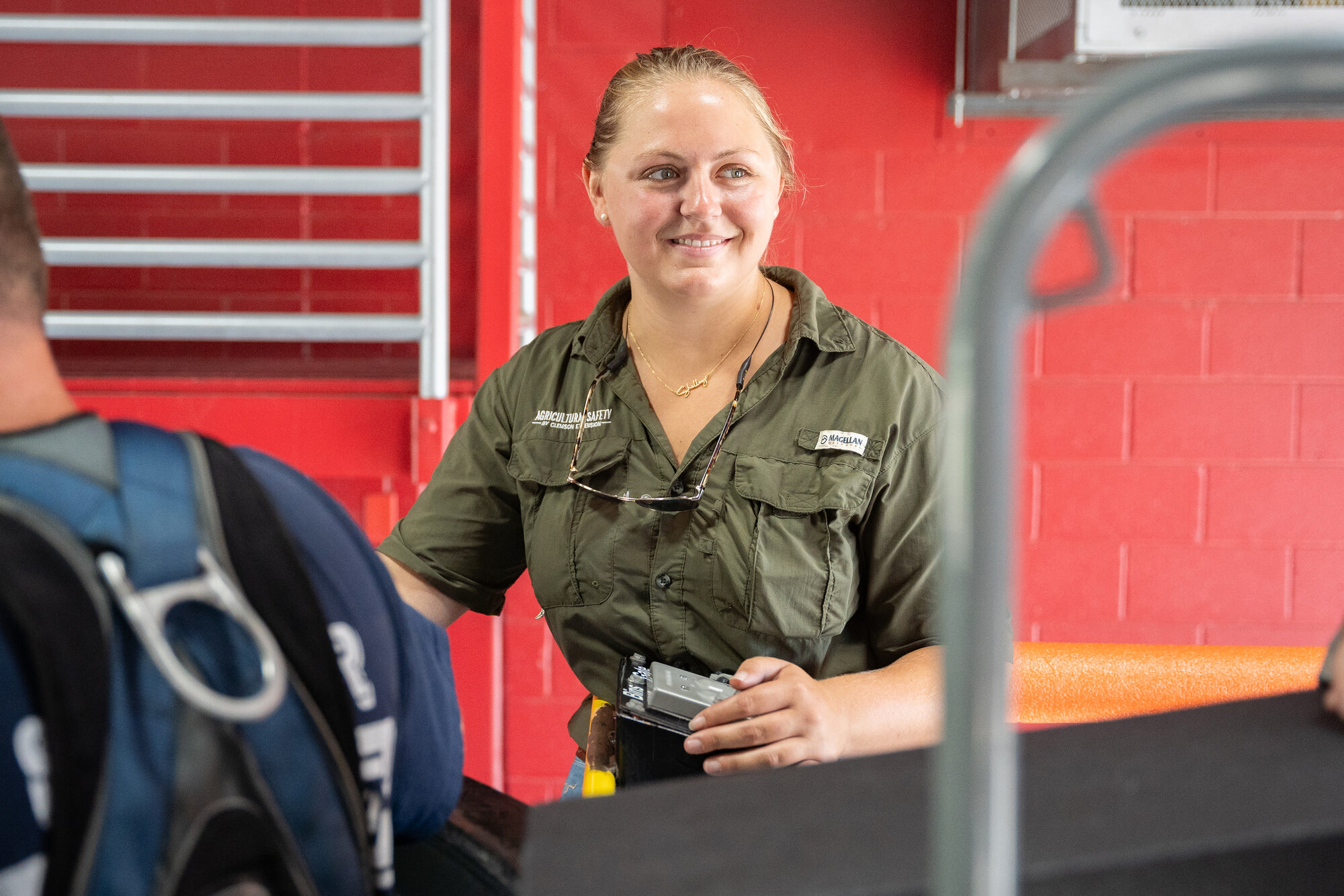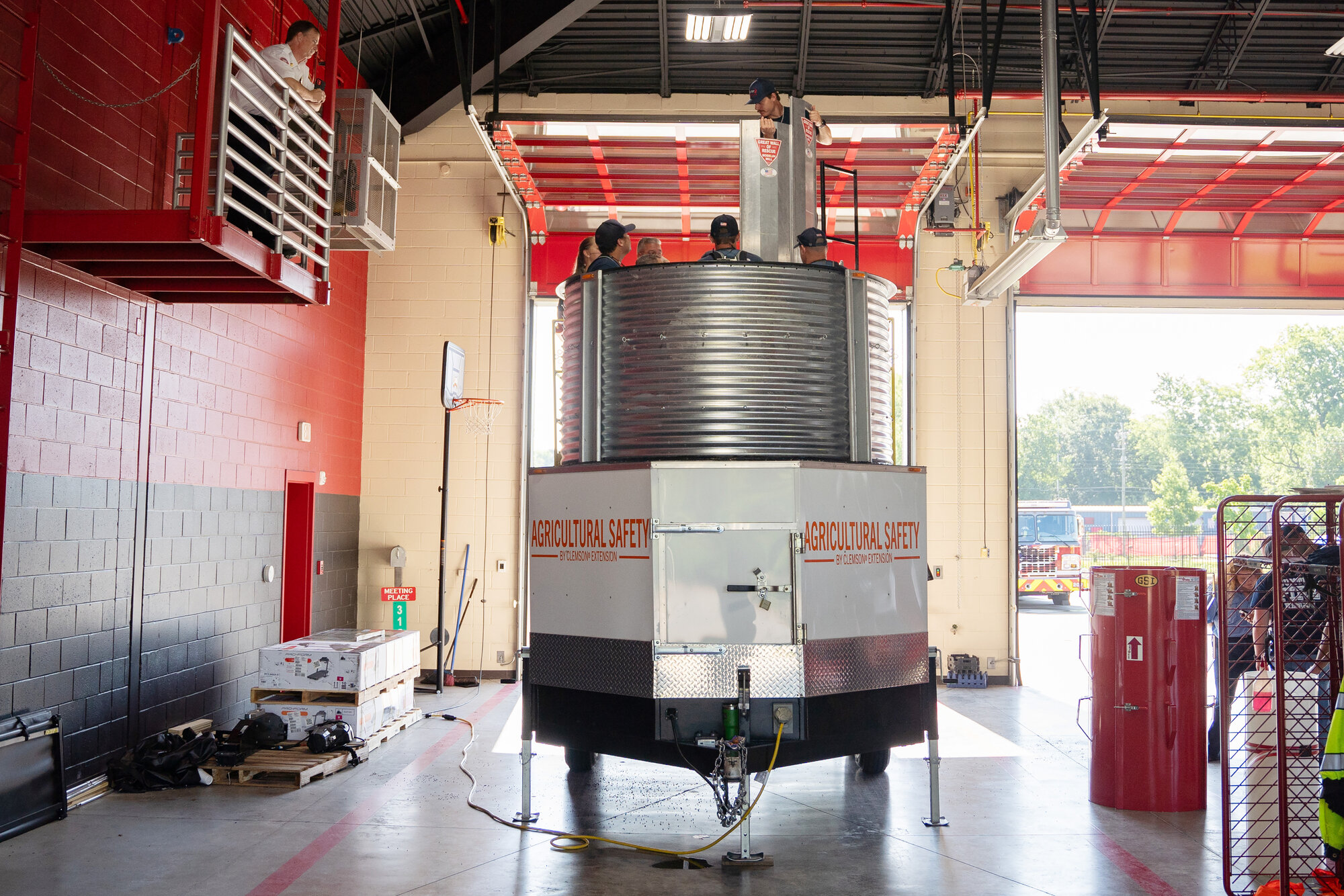Sumter Fire Department's Coker, Geddings weigh in on importance of grain bin rescue training
alaysha@theitem.com
In South Carolina, agriculture is more than an industry; it's a way of life.
The state's diverse farming landscape that produces corn, peanuts, soybeans and wheat relies on grain storage facilities to manage and preserve such harvests. However, as essential as grain bins are, things can quickly become dangerous, making grain bin rescues critical.
Clemson Extension's Agricultural Safety Program and Agricultural Sciences Research and Fabrication Lab worked hand in hand to design and construct a grain entrapment simulator to be used for training across the state, one of three in the nation. Since its release in 2023, the trailer carrying a grain bin has traveled to roughly 32 fire and rescue teams across the state to train and educate on rescuing a victim entrapped in a grain bin.
GRAIN BIN RESCUES
Purdue University reported 29 grain bin entrapments across the United States in 2021, the most recent year of available data. According to Clemson Extension, an individual has no more than three seconds to react after a fall into a grain bin, four to five seconds until they are trapped and 22 seconds until they are completely covered.
The states where grain bin entrapments are often reported are in Iowa, Indiana, Minnesota and Illinois - but our local fire and rescue team wants to be vigilant about its readiness if an incident ever occurred in our own backyard.
Sumter Fire Department would get its turn to simulate and train for grain bin rescues by being exposed to the potential hazards they may encounter on an actual call. It used a presentation to inform fire and rescue teams of the ways a victim can become entrapped as well as look at grains bins from a producer perspective. During the actual simulation, two firefighters are entrapped in the grain bin to ensure everyone present has an opportunity to assist with rescue.
Waiting in the wings, watching their colleagues absorb the useful information was the training division's Capt. Chris Geddings and Battalion Chief Judson Coker.
MEET THE NEW CHIEF AND CAPTAIN
Born and raised in Lake City, Coker began volunteering with South Lynches Fire Department in 2004. Though he enjoyed every minute of serving his community, he sought to expand his horizons by applying to Sumter Fire Department in 2007, where he was hired on that July. He moved up the ranks, serving as captain in the training division for seven years before being promoted to battalion chief in 2023.
Geddings, a Sumter native, would get his start with the local department a few years earlier in 2000. Volunteering from May 1997 until his hire date in January, he moved up through the ranks to become an instructor, teaching small classes until becoming the training officer before being promoted to captain in the department's training division this past January 2024.
The duo works together, taking their combined 40-plus years of experience to ensure the generations of firefighters who have and will continue to come through those bright red doors are equipped with the knowledge to save lives.
THE NEED TO LEARN
As the simulation came to an end, Coker garnered feedback on the training - much of it positive because of its uniqueness to their day-to-day calls. But that's nothing new, as these men and women undergo constant training to continue to keep the county and themselves safe.
"We feel we need to prepare our people as best as possible to be able to mitigate situations that they go to and recognize that they're in a situation that's unsafe and be able to get out of that situation before they get hurt or [worse]," Coker said.
"Training is like teaching a new fireman to become an old fireman," Geddings said.
There are chiefs within the department sporting 30 years of experience and this is the first time in their career they've had such training, Coker said. And while the next generation of fire and rescue members is prime for such training, their eager and ready to serve attitudes making department's bay lively with hope, that adrenaline when heading to a call, especially one outside of the usual calls, can lead grave mistakes. Seasoned firefighters also find value in being privy to new information. Though their years of experience comes with confidence to answer a variety of calls, what good is it if it lacks knowledge on how to handle them? Any side of the county you venture to will have grain bins, Geddings reasoned, so when the opportunity to train for grain bin rescues was presented, the department had to take it.
More Articles to Read

